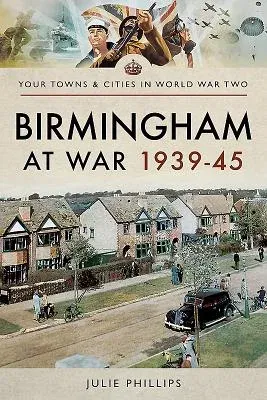Barely 17 years after the Great War that had brought Britain to its
knees, the country was once again asked to make sacrifices and give
their all to the war effort. With its strong industrial background,
Birmingham was already geared to help manufacture the vehicles that
could be adapted for war use, and with the threat of the German
Luftwaffe screaming across the skies, it was only right that the
production of planes, most notably the spitfire, was ramped up to help
protect the British public.
While many of its men and women were involved in the forces abroad, many
more stayed behind to defend the city, with inhabitants risking their
lives by taking up fire hoses, first aid kits, manning antiaircraft guns
and positioning barrage balloons in order to save others from the
devastating destruction of the Blitz. Meanwhile, the city's children
were separated from their families to escape the worst of the bombing
and would return from their adventures changed: not all host evacuee
families were as kind or as welcoming to their charges as it would
appear.
Yet not everyone was so patriotic and keen to do their bit, and the
opportunity for crime and to fiddle the rations with black market goods
was rife. Not even Government issue equipment was off limits, as one
Birmingham gang of sandbag thieves demonstrated.
For Birmingham, the Second World War was a time of great hardship and
sacrifice and the hard work continued for many years after, as its
people painstakingly rebuilt parts of the bomb-damaged city.

